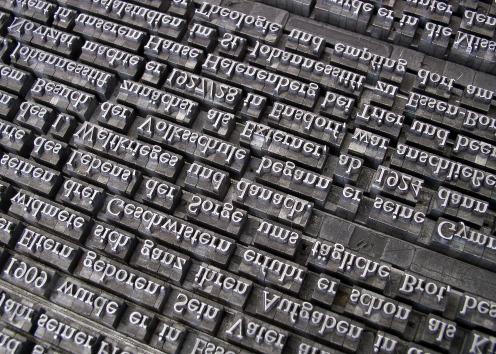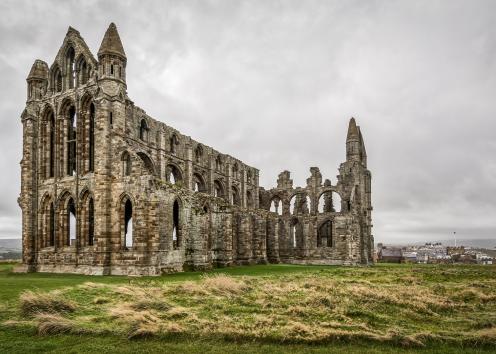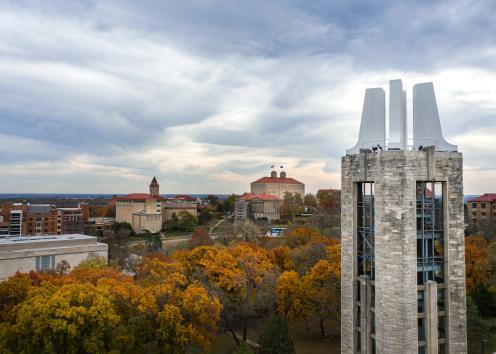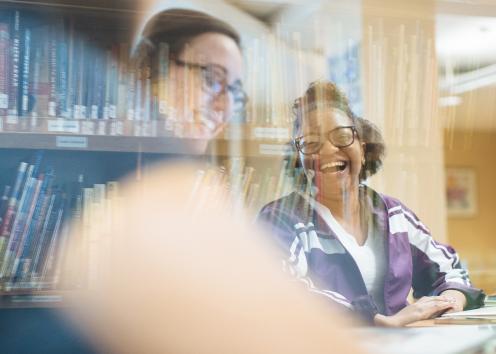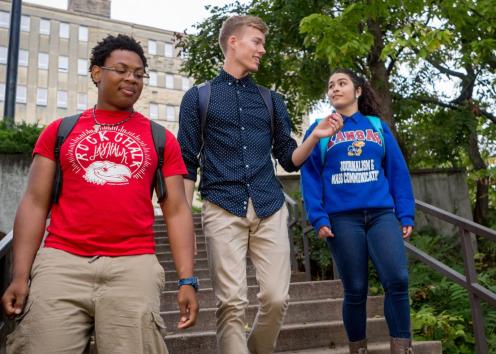Cultural Engagement Courses Spring 2026
ENGL 318: Topics in American Literature Since 1865: Protest Literature
Instructor: Sarah Ngoh
55801 | TuTh 12:30-1:45 PM | Wescoe 4037
In this interdisciplinary course we will examine the rich tradition of American protest literature (which we will define broadly as everything from early treatises from the American Revolution to contemporary hip hop lyrics and YouTube/TikTok videos of spoken word poetry), focusing on the production and consumption of dissent as a site from which to critique prevailing power structures and ideologies, and as a place from which to call for social change. We will operate under the assumption that, like Baldwin, most protest writers write from a place of love for their country/nation and are driven by their dreams of a better world.
Though we will read a few of the defining/well-known authors of protest literature (cool, old, white guys), we will also focus a good deal of our time on writers whose personal identities have worked to marginalize them socially and politically. By examining the ways in which each work assaults the status quo of an often inhumane and brutal society, we will trace a tradition of protest literature that runs parallel to and challenges hegemonic discourse in an effort to identify how authors have channeled their anger at injustice into rhetorical and discursive love.

ENGL 338: Introduction to African American Literature
Instructor: Dr. Zay Dale
55800 | MW 3:30-4:45 PM | Wescoe 4020
An introduction to prominent works of African American literature from the 18th century to the present as well as to the basic approaches to study and principles of this body of work, including its connection with African sources. Literature will include a wide variety of genres, and course materials may be supplemented by folklore, music, film, and visual arts. Prerequisite: Prior completion of the Core 34: English (SGE) requirement. Recommended: Prior completion of one 200-level English course.

ENGL 383: Cultural Rhetorics
Instructors: Sarah Kugler
55806 | MW 2:00-3:15 PM | Wescoe 4020
Who has the agency and authority to share their stories, and who does not? Whose stories do audiences listen to, and whose stories are largely glossed over or ignored? In this course, we will engage these questions through the lens of cultural rhetorics, an interdisciplinary sub-field of rhetoric and composition which explores how rhetorical communication and meaning-making are shaped by culture, and how culture shapes rhetorical communication and meaning-making. We will center decolonial, feminist, queer, critical race, and disability studies rhetorics with the goals of 1) examining how communities cultivate rhetorical practices, actions, and meanings, and 2) analyzing the critical and liberatory affordances these rhetorics offer. To this end, we will explore the relationship between rhetoric and power throughout the course, analyzing how rhetorical actions taken by individuals and communities can both uphold and challenge existing social, political, and ideological power structures. This course will include three units, focusing on theory, pedagogy, and methodology within cultural rhetorics, and will culminate in students developing an original research proposal which unites these three areas of inquiry. Overall, this course will challenge students to ask how powerful cultural forces influence whose stories are told, how those stories are told, and what rhetorical actions are available to individuals and communities seeking to shape their own futures.

ENGL 492: The London Review
Instructors: Doug Crawford-Parker & Sarah Crawford
42329 | M 4:30-5:50 PM | Wescoe 4023 & ABROAD Mar 14-22 (Spring Break)
Students participating in the London Review enroll in ENGL 492 or HNRS 492. The London Review is a Spring Break study abroad program through which students explore their individual interests in London with faculty support and guidance. Before Spring Break, students research museums, monuments, neighborhoods, sports venues, and other sites in preparation for the visit. As well, they read examples of travel writing as inspiration for the writing they will do upon return. After Spring Break, students collaborate to create a book documenting and analyzing their experiences.

ENGL 590: Studies in: Travel Writing & Costa Rica Experience
Instructor: Marta Caminero-Santangelo
52149 | ABROAD Jan 4-Jan 16 (Winter Break)
On this program, students will investigate a variety of current issues in Costa Rican politics, culture, ecology, and tourism through lectures, excursions, and individual writing projects. During the second half of the Fall semester, the group will meet regularly to prepare for their time in Costa Rica.
Deadline to apply is October 1!





